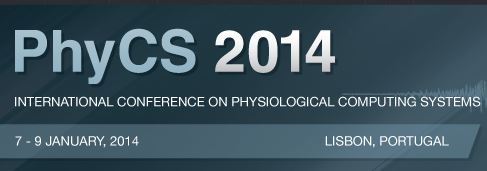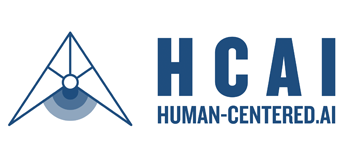Human-Computer Interaction & Knowledge Discovery @ PhyCS 2014, January, 7-9, 2014 (overlapping with Visigrapp 2014), January, 5-8, 2014
5th International Special Session on Sunday, 5th January 2014 – Post Publication in Springer LNCS SOTA (see below)
General Theme: “Advances in INTERACTIVE Data Mining”

Organization: Andreas HOLZINGER <expertise>, Igor JURISICA
Inquiries: a.holzinger AT hci4all.at
A grand challenge in our networked world is the growth of data. A timely example can be found in the biomedical domain: the trend towards personalized medicine produces big data sets. However, in the life sciences, most data models are characterized by high complexity, which makes manual analysis very time-consuming, often impossible. Computational methods may help; however, we know that the problem-solving ability is located in the human mind and – not in Von-Neumann machines. A strategic aim to find solutions for data intensive problems could lay in the combination of two areas, which bring ideal pre-conditions: HCI deals with questions of human perception, cognition, intelligence, sensemaking, decision-making and interactive techniques of visualization; KDD deals mainly with questions of machine intelligence and data mining, in particular with the development of scalable algorithms for finding previously unknown relationships in data, thus centers on automatic computational data analytical methods. A proverb attributed perhaps incorrectly to Albert Einstein illustrates our aim maybe ideally: “Computers are incredibly fast, accurate, but stupid. Humans are incredibly slow, inaccurate, but brilliant. Together they may be powerful beyond imagination”. Consequently, our mission is in a novel approach to combine HCI & KDD in order to enhance human intelligence by computational intelligence.
This special session is organized in beautiful Lisbon in the context of the international conference on physiological computing systems, January, 7-9, 2014, which is organized in conjunction with the 3rd international conference on sensor networks, the 4th international conference on pervasive and embedded computing and communication systems and the 2nd international conference on photonics, optics and laser technology. A big benefit is, that it is overlapping with the 9th international conference on computer vision, imaging and computer graphics theory and applications. A cross-domain integration and appraisal of different fields provide an atmosphere to foster different perspectives and opinions; it will offer a platform for novel ideas and a fresh look on the methodologies to put these ideas into Business.
This meeting is primarily intended as an input-meeting for planning joint projects in interactive knowledge discovery, including grant instruments as:
A) the HCI-KDD COST proposal – upcoming deadline is Friday, 28th March, 2014
B) the HORIZON 2020 program > General Guide
HORIZON 2020 offers a couple of interesting opportunities:
- Excellent Science > ERC – FET – Marie Curie – Infrastructure with free choice of topic
- Industrial Leadership
- Societal Challenges > Health, Demographic Change and Wellbeing
Information and Communication Technologies (ICT) samples include:
ICT-15-2014: Topic: Big data and Open Data Innovation and take-up
Specific Challenge: The activities supported under this topic address the general technological and systemic data challenges that concern entire value chains and/or bridge across borders, languages, industries and sectors. The aim is to improve the ability of European companies to build innovative multilingual data products and services, in order to turn large data volumes into semantically interoperable data assets and knowledge.
Call H2020-ICT-2014-1, Total Call Budget: 658 MEUR; Main Pillar: Industrial Leadership; Deadline date: 2014-04-23 17:00:00 (Brussels local time)
ICT 16 – 2015: Big Data research: The activities supported within LEIT under this topic contribute to the
Big Data challenge by addressing the fundamental research problems related to the scalability and responsiveness of analytics capabilities (such as privacy-aware machine learning, language understanding, data mining and visualization). Special focus is on industry validated, user-defined challenges like predictions, and rigorous processes for monitoring and measurement.
8. Health, Demographic Change and Wellbeing (released on 10 December 2013) samples include:
Personalising health and care (PHC) research & Innovation supported by this call will improve our understanding of the causes and mechanisms underlying health, healthy ageing and disease; improve our ability to monitor health and to prevent, detect, treat and manage disease; support older persons to remain active and healthy;
and test and demonstrate new models and tools for health and care delivery.
PHC 24 – 2015: Piloting personalised medicine in health and care systems
Specific challenge: Personalised medicine has the potential to respond to, amongst others, the increasing burden of chronic disease and the complexity of co-morbidities and in doing so contribute to the sustainability of health and care systems.

The papers shall be useful as state-of-the-art input for joint grant proposals, and accepted papers will be published in a past publication by Springer as a volume of the series of Lecture Notes in Computer Science (LNCS) > State of the Art Survey (SOTA).
So far, the following papers have been accepted (Corresponding author and title) and will be discussed, further elaborated and extended for the Springer Book:
Title of the Book: “Interactive Knowledge Discovery and Data Mining: State-of-the-Art and Future Challenges in Biomedical Informatics”
Volume Editors: Andreas HOLZINGER (Graz, Austria) & Igor JURISICA (Toronto, Canada)
Each paper describes briefly the state-of-the-art and focuses on future challenges and open research questions and provide a research agenda to stimulate further work which may be usable as related work and input for joint project proposals.
0a) docx-template MS Word > 0v1_MSWord_Template_for_LNCS_SOTA
0b) Template in pdf > 0v1_MSWord_Template_for_LNCS_SOTA
0b) tex-template LaTeX > SOTA-Springer
- Igor JURISICA (Toronto, CA): “Visual data mining: Effective exploration of the biological universe“
- Vasile PALADE (Oxford & Coventry, UK): “State-of-the-Art in Evolutionary Algorithms for Knowledge Discovery”
- Andreas HOLZINGER (Graz, AT): “On the generation of Point Cloud Data Sets: or how to get a graph structure”
- Sigi WASSERTHEURER (Vienna, AT): “State-of-the-art in Entropy-based Data Mining”
- Lior ROKACH (Beer-Sheva, IL): “Adapted Features and Instance Selection for Improving Co-Training”
- Pinar YILDIRIM (Okan University, Istanbul, TR): “Discovery and Visualization of Clusters for Erythromycin Related Adverse Events”
- Robert LARAMEE (Swansea University, UK): “The State-of-the-Art in Text Visualization and Analysis Tools”
- Mirko CESARINI (University of Milano, IT): “A Policy-based Cleansing and Integration Framework for Labour and Healthcare Data”
- Matthijs van Leeuwen (KU Leuven, BE): “Interactive Data Exploration using Pattern Mining”
- Mei KOBAYASHI (IBM Tokyo, JP): “A short intro on R for data mining in biomedical informatics”
- Miroslaw BOBER (University of Surrey, UK): “A Kernel-based Framework for Medical Big Data Analytics”
- Sangkyun LEE (University of Dortmund, DE): “On sparse inverse covariance estimation”
-list not yet completed-
Thanks to the participants for a fruitful meeting!
International Scientific Committee: The [HCI-KDD network of excellence] will ensure the highest possible scientific quality, each paper will be reviewed by at least three reviewers (the acceptance rate of the last special session was 29%).

